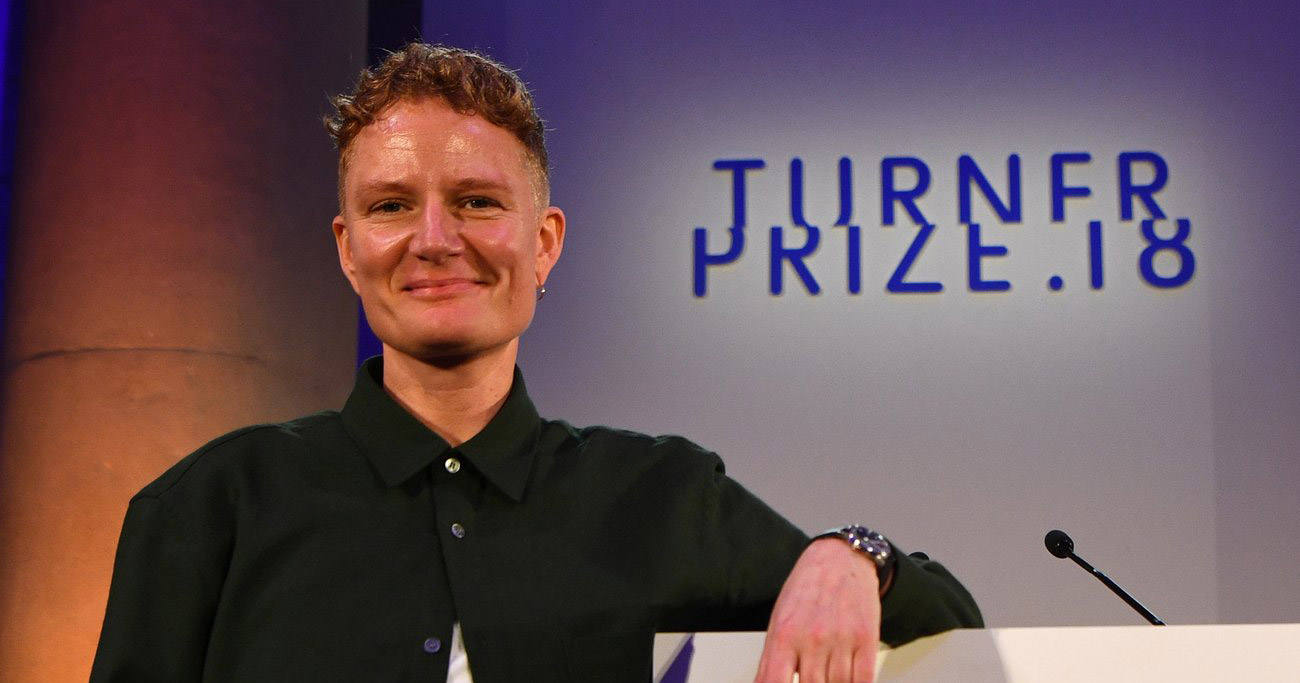Charlotte Prodger has won the top contemporary art award, the Turner Prize, for two of her short films which were both filmed on an iPhone.
Prodger picked up the award on Tuesday, December 4 at London’s Tate Britain for her two short films which explore queer identity in rural Scotland, and was presented with the £25,000 prize by author Chimamanda Ngozi Adichie, for which she was “quite overwhelmed”.
One of the videos, Bridgit, features readings from Prodger’s diaries and addresses her experience of coming out as queer in rural Scotland and explores themes of sexuality, class and gender, and frequently features Prodger herself on screen.
Prodger made the film over the course of a year, capturing footage of herself on her iPhone, journeying across the Scottish countryside, on a ferry and at home. Prodger also narrates the film with personal stories, anecdotes and extracts from books on ancient Britain.

“The stories that I’m telling, although they’re mine and they’re personal, are stories that a lot of people – I guess queer people – have experienced,” Prodger told BBC News.
2018 has been a wonderful year for 44 year-old Prodger, who has also been chosen to represent Scotland at the 2019 Venice Biennale.
Tate Britain director, Alex Farquharson, said of Bridgit, “It deals with gender as unfixed, as something fluid, as something not always conforming to society’s norms.”
“I was thinking about the importance of self-determination to histories of queer struggle,” Prodger said when she was first nominated.
“This is an encroachment on queer spaces, which is in part due to the commodification of queer aesthetic,” she added.

Prodger advocated for funding for arts and education in her acceptance speech, saying, “I wouldn’t be in this room were it not for the public funding that I received from Scotland for free higher education.”
After her win, the award-winning filmmaker said, “I feel very honoured, blown away really. It’s quite surreal. It feels lovely.”
Asked about how she plans on spending the prize money, she simply said, “I’ll live on it. I’ll pay my rent and my studio rent and some bills. Maybe there’ll be a little treat… probably a nice jacket. Don’t hold me to that!”
Prodger’s other winning title, Stoneymollan Trail, traces the history of recent video formats, such as iPhone, and explores Prodger’s personal history.
Prodger has been producing such art for over 20 years and her work often explores queer themes.
Bridget, as well as the work of all four shortlisted artists, will be on display in Tate Britain until January 2019.
© 2018 GCN (Gay Community News). All rights reserved.
Support GCN
GCN is a free, vital resource for Ireland’s LGBTQ+ community since 1988.
GCN is a trading name of National LGBT Federation CLG, a registered charity - Charity Number: 20034580.
GCN relies on the generous support of the community and allies to sustain the crucial work that we do. Producing GCN is costly, and, in an industry which has been hugely impacted by rising costs, we need your support to help sustain and grow this vital resource.
Supporting GCN for as little as €1.99 per month will help us continue our work as Ireland’s free, independent LGBTQ+ media.

comments. Please sign in to comment.